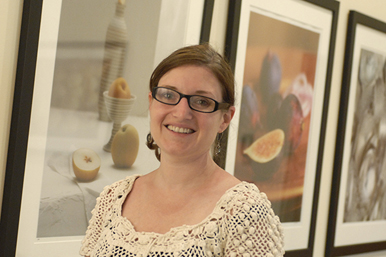Chocolate as a Mortal Sin?
MET’s Beth Forrest, a food historian, researches the morality of chocolate in Spanish culture.

When Beth Forrest, a doctoral candidate in the Graduate School of Arts and Sciences history department, discovered that priests in early modern Spain believed drinking chocolate was a mortal sin, she was hooked on chocolate culture. Forrest, who is also a Metropolitan College instructor and assistant director of the MET gastronomy program, will give a paper on chocolate’s introduction into Spanish culture at a conference this June in Vancouver, British Columbia.
Forrest will present her paper at the joint annual meeting of the Association for the Study of Food and Society (ASFS) and the Agriculture, Food, and Human Values Society. The meeting is celebrating the 20th anniversary of both organizations.
“It’s my favorite conference, because it’s a clearinghouse for people who study food,” says Forrest, who was elected to the ASFS advisory board last year. The conference welcomes a wide variety of specialists, including anthropologists, sociologists, and historians.
Forrest’s interest in chocolate began when she organized Chocolate Culture: A Symposium in 2004 at BU. After reading about Spanish women who were told to stop drinking chocolate during mass, but chose excommunication instead, she became fascinated and continued to research chocolate history.
Her paper, Montezuma’s Revenge? Chocolate and Identity in Early Modern Spain, discusses the introduction of chocolate into Spanish society and how Spaniards came to terms with the new food.
Several BU students will present papers at the conference, which had about 200 attendees last year.
Rebecca McNamara can be reached at ramc@bu.edu.